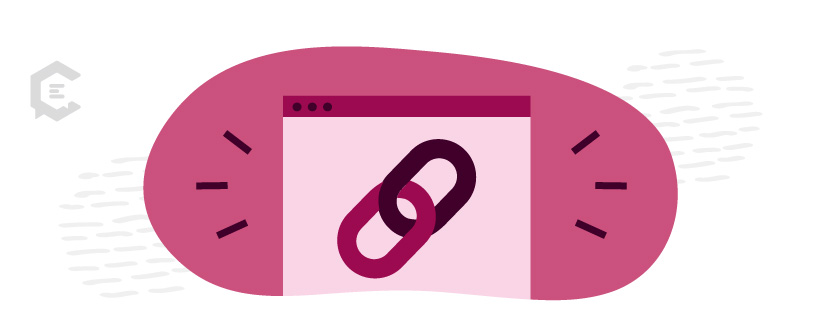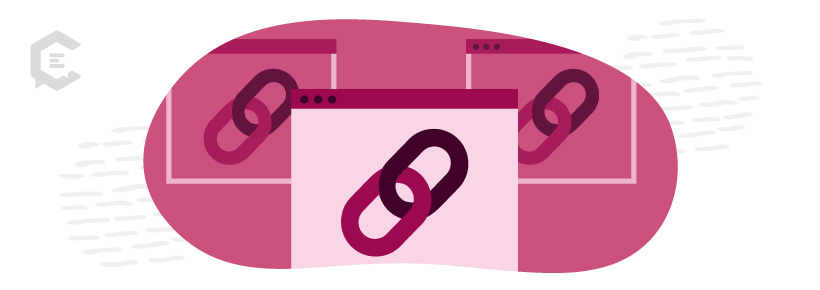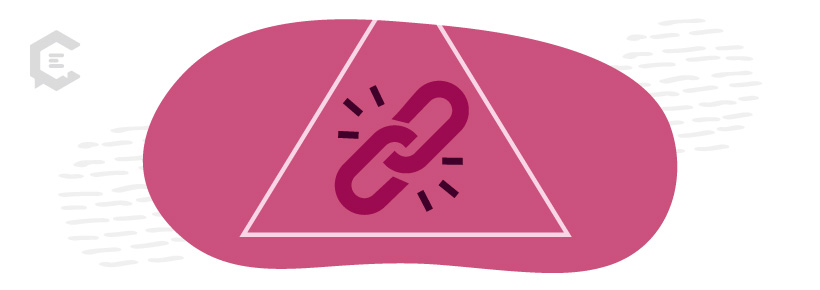Depending on who you ask, links are either the best or worst thing to happen to the internet. But no matter your thoughts on the topic, when done right, building backlinks can drastically improve your search engine rankings.
But first, a short primer on links.
Why links matter to your online presence
Links are beneficial for everyone, from business owners to content marketers.
Here are just a few of the reasons you might use links:
- Source attribution
- Direct readers to additional resources they might enjoy
- Continue your thought by sending people to articles that might spark further conversation
- Highlight what you’ve written previously by including links to past content
- Helps you build “link juice” by linking to relevant, high-quality sites in your content
But it isn’t all about the good parts, and there’s a dark side to the endless pursuit of backlinks as well. If people know you best for begging for links, you’re doing something wrong. And if the only interaction you have with people is when you ask them to link to your content, you might be tarnishing your reputation on a daily basis.
Is there a difference between backlinks or links?
Nope. But you’ll probably notice that people who make a living out of SEO are very earnest about referring to links as backlinks.
A backlink or link connects one website or blog to the next site or page or social profile or anything else they feel is important to share at that moment.
Why do you need links?
If you want to build up your online credibility with Google and other major search engines, you’ll want a lot of backlinks. In many ways, Google judges your site based on how many other sites link to it. While there’s complicated website wizardry and algorithms involved, the bottom line is that quality backlinks boost your SEO rankings.
What are quality links anyway?
While all links are desirable, some are more appealing than others, especially a backlink from a top-ranking site. For instance, would you prefer a backlink from iphoneinfo.com or the homepage of Apple.com?
Even without knowing the ins and outs of quality linking, you no doubt automatically know which one you’d choose.
Is it OK to ask for a backlink?
Is it rude or acceptable to ask for a link? The short answer is yes to both. When done incorrectly, it can be extremely annoying when people request a backlink. But when done correctly, it’s a great strategy that can be beneficial to both sites.
That said, it’s fine to request a backlink as long as you do it respectfully and in a way that makes sense to the person you’ve asked as well.
4 ways to respectfully ask for a backlink
- Do your research first. Be clear about what you’re asking for. If the article appears on a news site, it’s unlikely a freelancer will update it simply to get you the link. But if you’re offering information that wasn’t previously available or a product that might be perfect for a round-up, there’s a chance they’ll say yes.
- Offer a backlink in return. if you manage a credible and highly trafficked site, the return link might be appreciated.
- Be transparent. Starting an email with one thing before shifting to ask for a link comes across as untrustworthy and sleazy.
- Ask the right person. Research the site owner and call them by name.
Pay attention to potentially sketchy services
If you’ve decided to build up your backlinks, you might be tempted to use a service to help with the process.
“Many people fall prey to questionable backlink services that put your link on a Private Blog Network (PBN) and feel they have done their job,” said Kolleen Shallcross, owner of Shallcross Web Design.
Shallcross said that the problem with artificially inflated links created when you use a PBN is that “search engines are getting smarter and can spot PBNs and spammy sites. Paid links are supposed to carry the ‘rel=’sponsored’ tag and many do not. Cheap or even expensive paid backlinks can end up with a “rel=’nofollow’ “ and be rendered useless after an initial period, with the website owner extorting you for more money to put it back to a do-follow link.”
11 tips for building backlinks the right way
“Backlinks take time, therefore money,” Shallcross said. “Creating a robust network of journalists and various website niche connections are the core of a great PR and marketing agency.”
She offered some suggestions on how to organically build links back to your site or blog:
1. Offer content
Contact a news site or niche website and offer a guest article that is unique content.
“Many sites will happily add a blog post or topical article if it’s truly one-of-a-kind content that will enhance their site. ‘How to’ guides are one of the most popular to get a guest post,” Shallcross said.
But avoid being a link pusher. A link pusher might offer content that is so keyword-heavy that it barely resembles interesting or readable content. Respect the person you’re contacting enough to offer a quality product in return for a desirable link.
2. Do targeted outreach
Contact a niche market and simply ask. Believe it or not, it’s not creepy to simply find a site with a similar outlook or ethos to your own and start a conversation about exchanging links.
Shallcross said, “This is part of creating relationships with legitimate site owners that will benefit from an outlink to another legitimate site.”
3. Use social media to find opportunities
Look for interview opportunities with industry groups on LinkedIn or Facebook. If you’re truly an expert on a topic and can clearly articulate your thoughts and offer helpful advice, you could be a desired expert. And that will probably get you some links back to your website.
4. Look on campus
Sponsor a college club. Shallcross suggested doing something charitable, like creating a $500 scholarship to get a link from an .edu website. Consider starting with your alma mater.
5. Go the Q&A route
Answer people’s questions in forums or Q&A sites. If you’ve ever noticed prolific commenters on sites like Quora or even Reddit, some of them are in it for the links alone.
“Granted, this was much more popular years ago, but there are still opportunities there,” Shallcross added.
6. Become an expert source
HARO and other reporter outreach sites offer great opportunities for link-building. Start responding and offering tips or advice that make you quotable. One caveat, if you’re not an expert, don’t force it.
7. Get listed
Look for industry publications, listings, and directories. Shallcross said that these are still great places to begin building your backlink profile. Some are paid, and some are free.
8. Become a featured vendor
Get your suppliers to list you on their site as a preferred vendor. Sometimes all you have to do is ask!
9. Create great social content
Create some great content on social sites, such as a LinkedIn article or a YouTube video. Shallcross explained that even though these are not direct “follow” links, they still count in the overall picture of how your website’s authority is measured.
10. Make a widget
Create a website widget (WordPress, Shopify, etc.). This one is a bit more technical, but Shallcross explained that by doing this, you’ll have your link display for the free users.
11. Write a white paper
Write a white paper on your industry that will get shared in your niche. Create a think piece or survey that not only shows off your knowledge and skill set, but also gains a link back to your site.
Consider hiring a link-building expert
You don’t have to handle every aspect of your link building.
“There is a big difference between paying for backlinks or paying someone for their time to procure legitimate unpaid backlinks.”
Besides, it takes a lot of time to be able to research the right kind of potential linking partner and also to understand the value of the hoped-for link.
“As with everything marketing, it comes down to time and money,” Shallcross said. “If you have the time to put into finding and creating your own links, that’s great. If you don’t, you’ll need the money to hire someone to do the legwork. Outright buying links never work well in the end.”
4 link-building mistakes to avoid
Now that you know what to do to successfully build up your backlinks, here are a few things to avoid:
- Don’t send someone an incorrectly bylined article and ask for a link.
- Don’t play a game of my expert is better than your expert. This is an ugly practice wherein someone might pick apart something that appears on your website and then offer an amended piece citing their own expert. It’s a terrible practice that builds ill will instead of a successful link.
- Don’t think people don’t know exactly what you’re doing. They do. If you try to put something over on someone you’ll probably get an automatic no.
- Pay attention to the link itself. If someone wrote a one-time opinion piece in a major international news outlet, chances are good that they lack the ability to link to your client. Chances are even better that they’ll mark you as spam.
Improve your domain authority with high-quality content that attracts backlinks. Talk to a content specialist at ClearVoice today.







